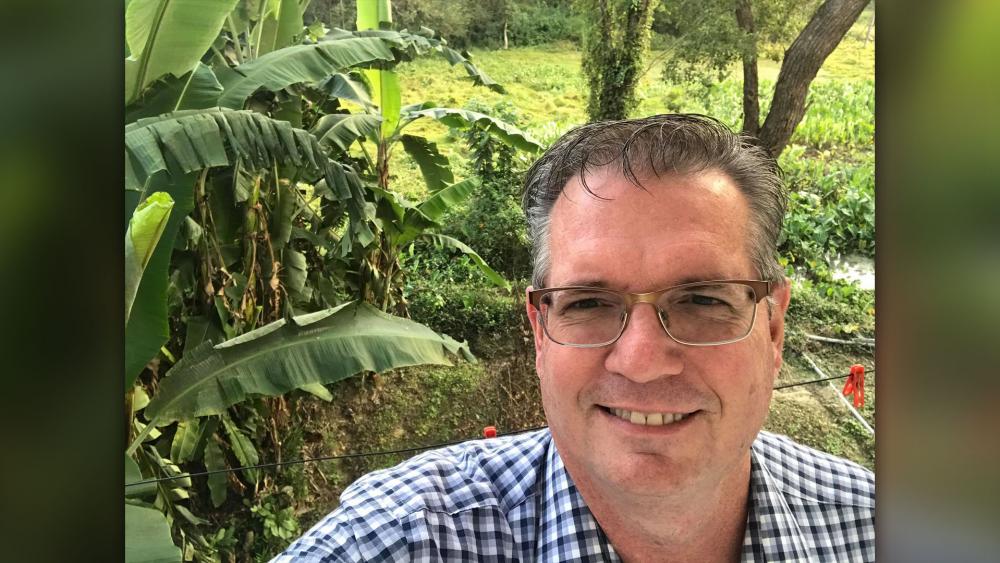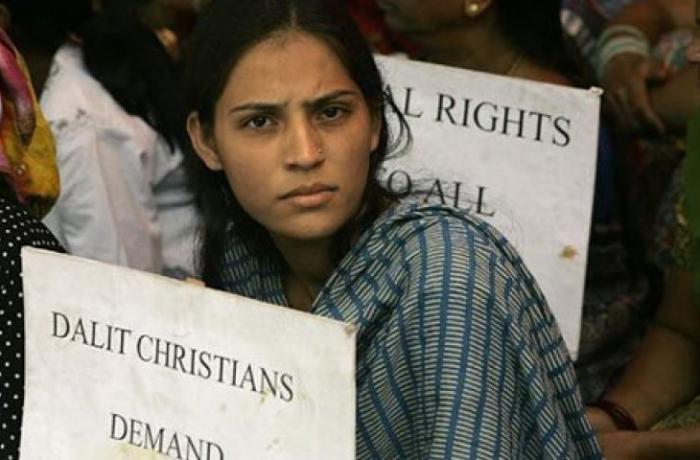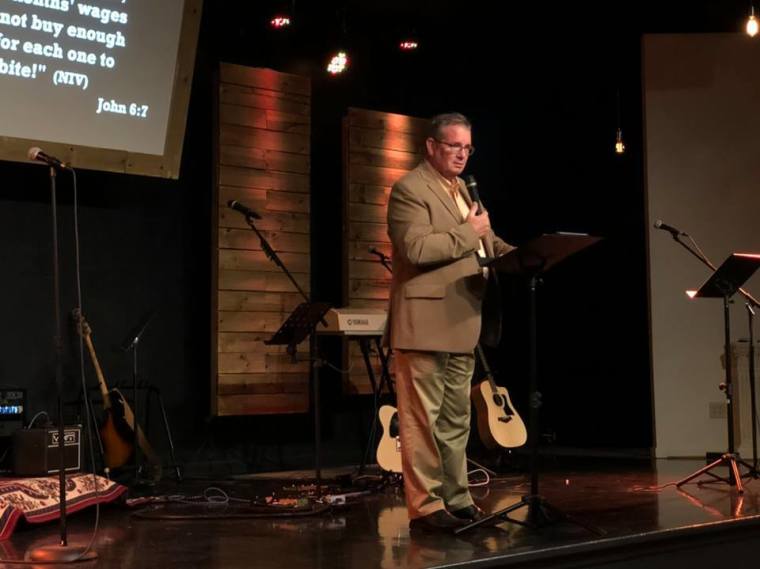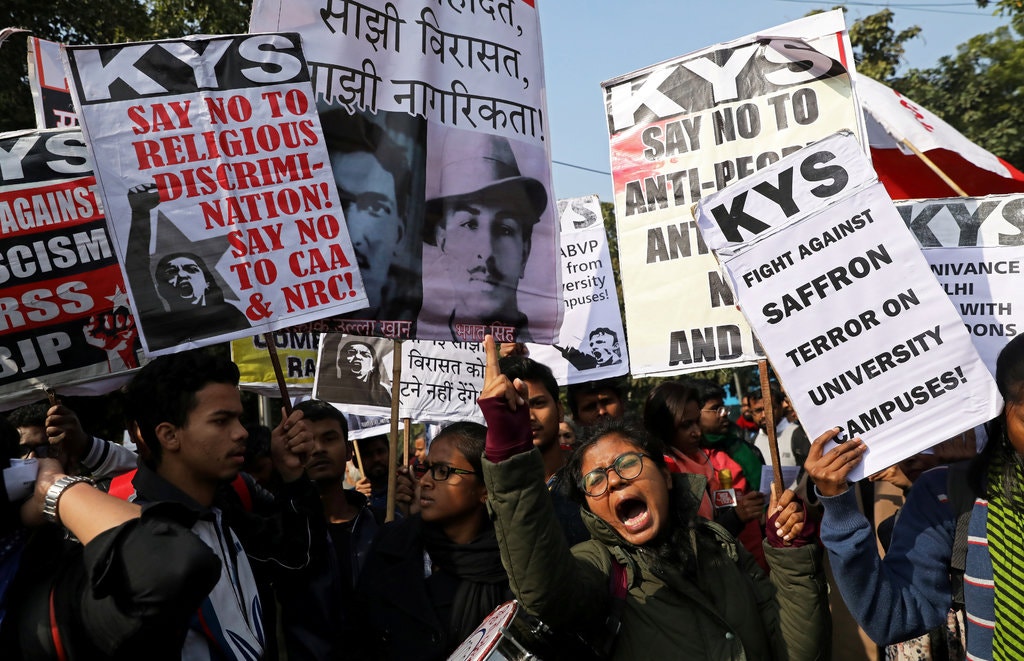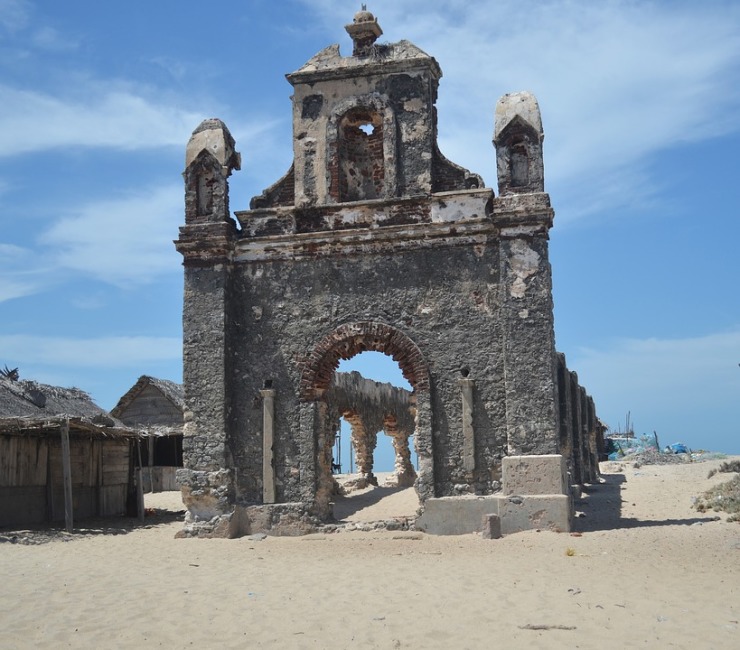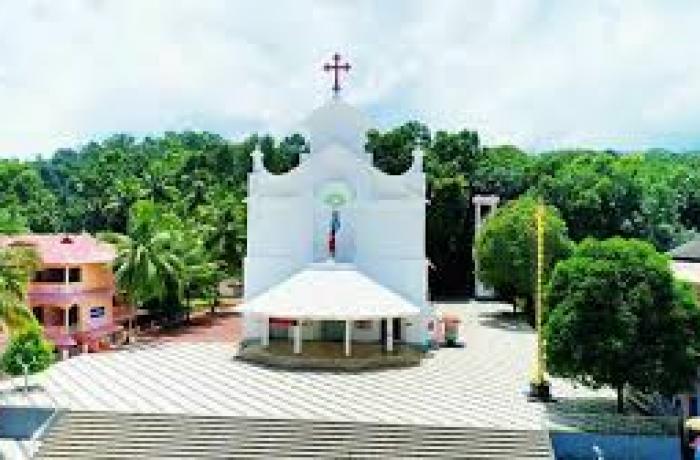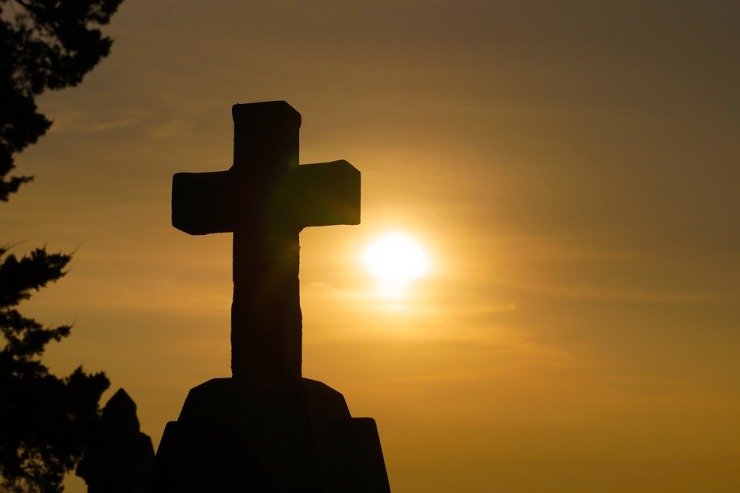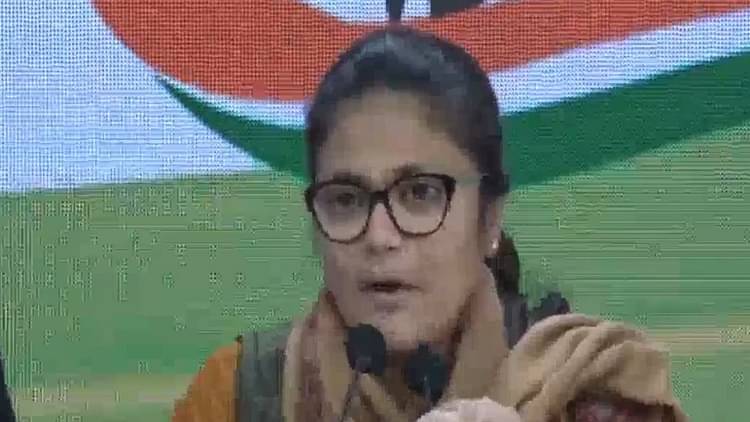India Catholics aim to build 100-foot Jesus statue, despite Hindu criticism
Bangalore, India, Jan 9, 2020 / 12:37 am MT (CNA).- Catholics in India are seeking to erect the nation’s tallest statue of Jesus, over objections by Hindu groups who say one of their gods lives on the hill designated for the project. Work began last week on the statue, planned to be nearly 100 feet tall, on 10 acres of land owned by the Archdiocese of Bangalore. If completed, the statue would be almost as tall as Poland’s 108-foot Christ the King statue, completed in 2010. Poland’s statue is believed to be the tallest statue of Jesus in the world. Hindu groups have opposed the project, objecting that the Kapalabetta hilltop is the abode of their deity Kapali Betta. They said Christians cannot set up a statue there. Father Cyril Victor Joseph, chairman of the archdiocese’s media commission, told UCA News that the controversy is unnecessary and due to misleading media coverage. He said the land in Ramanagara district has long been in church possession. “We used the same land for decades and conducted the Way of the Cross during Good Fridays,” he said. “A cross was there, and we wanted to replace it with a statue of Jesus after the land was donated
American Pastor Held 3 Months in India Could Finally Have His Day in Court
American Pastor Bryan Nerren, a US citizen, was arrested and has been detained in India for three months because of his faith, his attorneys say. Nerren, 58, was facing the Siliguri Court on Thursday, which may finally release his passport and allow him to return home to the US and his family, according to the American Center for Law and Justice (ACLJ) which is representing Nerren. After more than 17 years ministering to the people of Nepal and India – training Sunday School teachers – he was stopped on his way to a conference in India. He was questioned about his Christian faith and whether funds he was carrying would be used to support any Christian work; he was subsequently arrested and has been detained in India since October 5, 2019. As CBN News reported in October, Nerren, the leader of the International House of Prayer Ministries in Shelbyville, TN, was initially detained on October 4 along with two other pastors. Nerren's supporters believe this was part of a coordinated action by law enforcement. Earlier, in New Delhi, police had taken issue with Nerren's carrying of a large amount of cash, intended to cover the expenses for two large conferences with over 1,000 attendees booked. "Pastor Nerren explained what
Supreme Court agrees to hear petition on reservations for Christian Dalits
Christians want Scheduled Caste status to be granted regardless of religious affiliation. Changing religion does not end the discrimination imposed on the Dalit community. For years, the Church has asked for the revision of a 1950 presidential order that excludes converts to Christianity from quotas in public administration. India’s Supreme Court has agreed to hear a petition filed by Franklin Caesar Thomas, a lawyer representing the National Council for Dalit Christians (NCDC), seeking inclusion of Dalit Christians in the category of Scheduled Castes The Bench headed by Chief Justice of India SA Bobde with Justices BR Gavai and Surya Kant will hear the petition and issued a notice to the federal government about the matter. In India the caste system was formally abolished by the country’s constitution, but it continues to be practised at the expense of the people formerly known as “untouchables”. The Scheduled Caste policy is aimed rebalancing the unfairness and improve the lives of poor people. For years, the Catholic Church has called for an amendment to the 1950 presidential order that includes Hindu, Sikh and Buddhist Dalits in public sector quotas but not those who convert to Christianity. India’s Christians represent 2.3 per cent of the population, that is 27.8 million out of a
India refuses to let US pastor leave country 3 months after arrest for being Christian
A Tennessee pastor is still being barred from leaving India three months after his arrest even though a customs case against him for allegedly not paying duty on the money he brought into the country has been resolved, according to a lawyer representing the family. Cece Heil, senior counsel with the American Center for Law and Justice, told The Christian Post that pastor Bryan Nerren was scheduled to have a hearing before a court in Siliguri on Thursday morning as his case has gone back and forth between customs and the court system. There was some hope, even though small, she said, that Nerren — the founder of a nonprofit that serves in Nepal called the Asian Children’s Education Fellowship — could be given back his passport and allowed to leave the country since he paid a fine related to what advocates say is an unfair charge of evading duty payment. However, Thursday’s scheduled hearing in Siliguri was postponed, Heil said. Nerren, the pastor of International House of Prayer Ministries in Shelbyville, was arrested on grounds that he brought $40,000 with him upon his entrance into India in early October 2019. The money was to be used to pay for his two-week trip to India and Nepal to
Behind Campus Attack in India, Some See a Far-Right Agenda
Hindu nationalists view Jawaharlal Nehru University, where a mob rampaged last weekend, as “a symbol of everything that is bad in this country,” one analyst said. For decades, Prime Minister Narendra Modi’s party and its affiliates have struggled to control one of India’s most fertile ideological recruiting grounds: university campuses. That project erupted in violence last weekend, as masked men and women stormed the New Delhi campus of Jawaharlal Nehru University, one of India’s premier liberal institutions. Witnesses said police officers stood by as students were attacked with rods and bricks. Some assailants shouted slogans associated with Mr. Modi’s governing party and its parent organization, the Rashtriya Swayamsevak Sangh, or R.S.S., which for decades has aspired to turn India into a Hindu nation. “They pelted stones at us, stones half the size of bricks,” said Sucharita Sen, a geography professor, who was struck in the head and needed stitches. She was bleeding profusely, she said, adding: “I saw the face of terror.” Mr. Modi’s government initially condemned the violence. But some ministers, along with others in the governing Bharatiya Janata Party, tried to justify it. “For too long, Leftists have been treated with kid gloves,” the party’s branch in the state of Karnataka said on Twitter. “No
Year 2020 may be a challenging year for Christians in India
Last year, there were several incidents of attack on house churches, Christian leaders and worship places in India, and following the re-election of BJP, Christians in the country see 2020 as a year of challenges to practice their faith freely. "Nobody should be persecuted because of their faith," said Tehmina Arora, a practicing Supreme Court lawyer and Director of ADF India. "In India, more and more Christians suffer from an increasing number of physical and verbal assaults." According to Arora, majority of the violence against Christians is planned and executed by the radical Hindu nationalists, frquently incited by the pro-Hindu government's nationalistic polices. Even though more than 300 cases of mob attacks against Christians of all denominations are registered, only less than 40 of those cases were prosecuted by the police, Arora pointed. In addition, the recent controversial laws implemented by the BJP government has given rise to a lot of religious tension across the country. There is nationwide protest and citizens are opposing the laws that bring about religious discrimination. More than 20 people have lost their life due to violent response from the authorities. Looking at the intolerance and persecution against Christians and other minorities in the country, Christians do not feel there
The Apostle of Hate
SHORTLY BEFORE HIS EXECUTION, in the early hours of 15 November 1949, Nathuram Vinayak Godse, the Hindu-supremacist fanatic who killed Mohandas Karamchand Gandhi on 30 January 1948, recited a prayer: Namaste Sada Vatsale MatrubhumeTwaya Hindubhume Sukham VardhitohamMahanmangale Punyabhume TwadarthePatatvesh Kayo Namaste, Namaste!O affectionate motherland, I eternally bow to youO land of Hindus, you have reared me in comfortO sacred and holy land,May this body of mine be dedicated to you and I bow before you again and again! These four Sanskrit sentences constitute the first of the three stanzas of the Rashtriya Swayamsevak Sangh’s official prayer, which continues to be sung to this day at its shakhas—regular assemblies meant for physical and ideological training.
Thousands join multi-prayer program in Delhi against citizenship law
People of different faiths came together on January 12 to participate in a ”sarva dharma sambhava” – a multi-faith prayer ceremony – at Delhi’s Shaheen Bagh, where anti-citizenship law protesters have been demonstrating for almost a month now. The inter-faith ceremony had a traditional Hindu-style “hawan” and chants of Sikh “kirtan.” The participants read out the Preamble of the Indian Constitution and took an oath to preserve its “socialist, secular” values. “Scriptures from the Gita, the Bible, the Quran were read and Gurbani held. Then the Preamble of the Constitution was also read out by people from varying faiths who are supporting this movement,” Syed Taseer Ahmed, one of the organizers of the protest, told news agency PTI. The crowd swelled to thousands by evening. Senior Congress leader Shashi Tharoor was among those who addressed the protest in the evening. Being a Sunday and the weather relatively warmer, more people, could join the protest, he added. The concept of ”sarv dharm sambhav” (equal respect for all religions or peaceful co-existence of all religions) was popularized by Mahatma Gandhi during India’s freedom struggle against the British rule to promote inter-faith harmony. Hundreds of protesters, including women and children, stayed put at the Sarita Vihar-Kalindi Kunj road
Hindu group opposes Christian president of Marathi literature festival
Veteran poet N D Mahanor on January 9 opened All India Marathi Literature Festival amid tight security in view of threats from right-wing Hindu organizations. The groups had warned Mahanor, a Padma Shri and Sahitya Academy awardee—not to inaugurate the festival as a Christian priest, Father Francis D’Britto, presided over the festival. The priest is a Marathi writer. The literature festival was held January 10-12 in Osmanabad in Maharashtra, some 410 km southeast of Mumbai, the state capital. “I have been getting calls since January 1 asking me not to attend the festival as a Christian man is the president. Akhil Bharatiya Brahman Mahasabha had sent a letter asking me not to inaugurate the event, as they would be protesting at the venue. But there was no question for me not to inaugurate the festival.” Mahanor told NewsClick, Anand Dave, secretary of All India Brahman Mahasabha (grand council of Brahman), said his organization did not threaten the 78-year-old litterateur. “We requested him not to inaugurate the festival that is presided by a Christian priest. We did not want him to witness our protests at the venue,” he said. However, Mahanor’s close aides have said that repeated calls and “requests” in harsh words constitute a threat
JNU attack ‘state-sponsored’, VC must be dismissed: Congress fact-finding committee
Fact-finding committee of Congress on JNU violence said the January 5 attack inside the campus was “state-sponsored” and recommended VC be dismissed and criminal investigation initiated against him A fact-finding committee of the Congress on the JNU violence on Sunday said the January 5 attack inside the university campus was "state-sponsored" and recommended Vice Chancellor M Jagadesh Kumar be dismissed and criminal investigation initiated against him. The Congress had appointed a four-member fact-finding committee to carry out a detailed inquiry into the violence at the Jawaharlal Nehru University (JNU). Sushmita Dev, member of the committee, said the committee recommended that Kumar should be dismissed immediately and all the appointments in faculty should be probed and independent inquiry should take place. "Criminal investigation must take place against the VC and faculty members and the security company," the Mahila Congress chief said. "It is clear that the attack on JNU campus was state-sponsored," Dev said. She also demanded a complete rollback of the JNU fee hike. The other members of the fact-finding committee are Hibi Eden, MP and former NSUI president, Syed Naseer Hussain, MP and former president of JNU NSUI and Amrita Dhawan, a former NSUI president and ex-DUSU president. On January 5 night, masked people armed with rods






